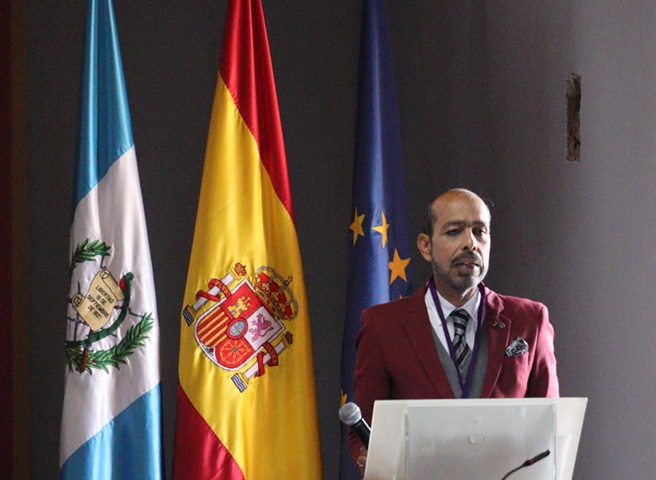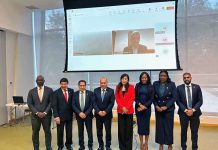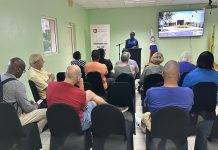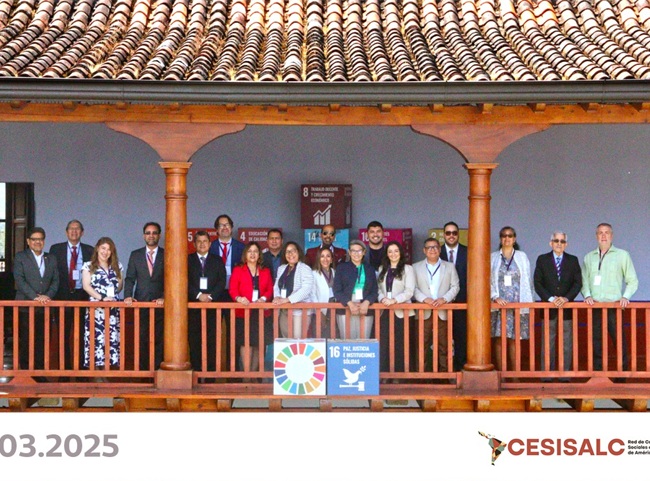Regional CESISALC Summit in Guatemala calls for bold, data-driven action
Willemstad / Guatemala, April 11, 2025 — Representatives from the Latin American and Caribbean Network of Economic and Social Councils and Similar Institutions (CESISALC) gathered on March 31 in La Antigua, Guatemala, for their annual summit. The event, chaired by the Social and Economic Council of Curaçao (SER) since September 2023, underscored the urgent need for regional innovation in policy, governance, and institutional cooperation amid mounting global and domestic challenges.
In a pointed opening address, Mr. Raul Henriquez from the chair of CESISALC warned that Latin America and the Caribbean are contending with a “triple systemic crisis”: escalating inequality, labor precarity, and environmental fragility. According to the Economic Commission for Latin America and the Caribbean (ECLAC), the wealthiest 10% of the population control over 55% of total income, while the poorest 50% must survive on just 10%. More than half of the region’s labor force remains in the informal sector, excluded from legal protections and basic social safety nets.
“This is not the time for passive commentary,” Henriquez said. “Social dialogue must move from the technocratic margins to the political center. Our legitimacy lies not in symbolism, but in our capacity to formulate structural responses to systemic challenges.”

From analysis to strategic action
The summit’s working sessions focused on innovative methods for policy engagement, digital participation, institutional modernization, and the strategic use of data in public decision-making. There was broad consensus among participants that social dialogue, when embedded in institutional frameworks and grounded in evidence, remains the most legitimate and sustainable tool to address rising societal tensions.
Contributions from leading experts added depth to the deliberations. Among them were Dr. Vasco Torres de León, director of the Escuela Interamericana de Diálogo Social, Tripartismo y Resolución de Conflictos (based in Panama), Dr. Caryl Alonso Jiménez, Guatemalan, academic lecturer and international expert on public policy and social dialogue, and Rodrigo Mogrovejo of the International Labour Organization (ILO). They emphasized the need to strengthen institutional resilience and foster anticipatory governance, particularly in countries like Honduras and Peru, where fragile labor markets and deep polarization pose significant risks to democratic stability.
Knowledge-sharing and regional alliances
Running parallel to the summit was INTERCOONECTA, a regional cooperation platform of the Spanish development agency AECID, held from April 1-3. The program explored how social and economic councils can contribute to child protection, poverty reduction, and the legal institutionalization of social dialogue in national frameworks.
A newly released publication showcased the role of participatory governance in achieving the Sustainable Development Goals (SDGs) of the 2030 Agenda. The meeting also marked the official launch of RICESIS, a new Ibero-American network for multilateral cooperation between councils in Latin America, Spain, and Portugal.
Presidency transition ahead
As per CESISALC tradition, a virtual preparatory meeting will be held in May to identify the member state that will assume the network’s rotating presidency from Curaçao in September 2025. The transition will follow the network’s principles of transparency, consensus, and collegiality.
The summit concluded with a resounding call to action. “The complexity of our time must not paralyze us,” Henriquez affirmed, “but compel us to innovate, to collaborate, and to act. The future does not wait. The future must be designed—collectively, consciously, and with moral purpose.”































